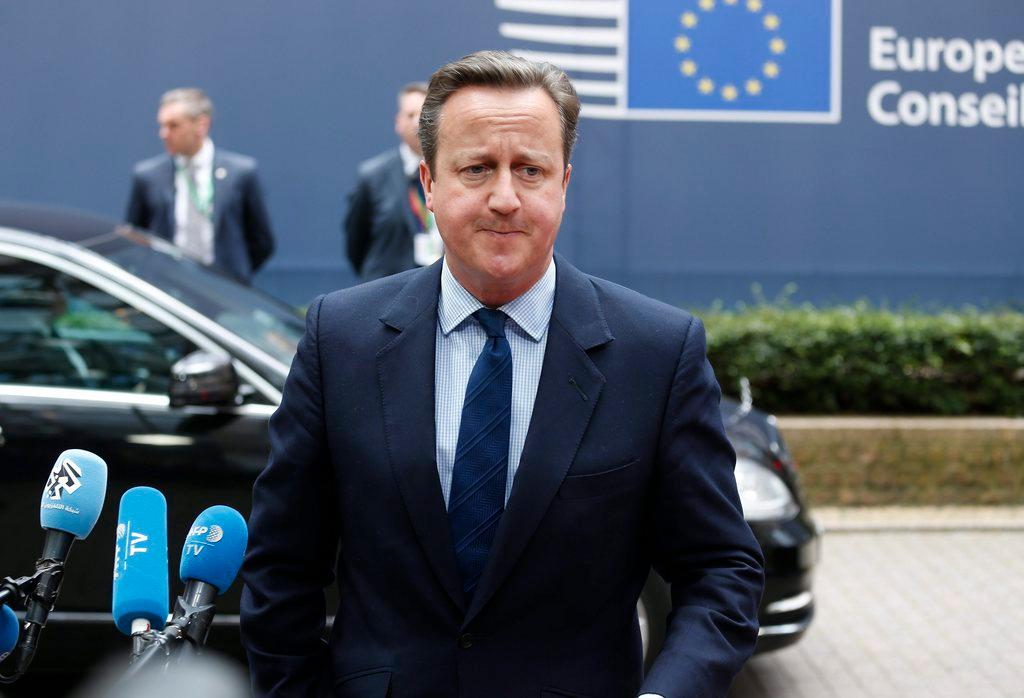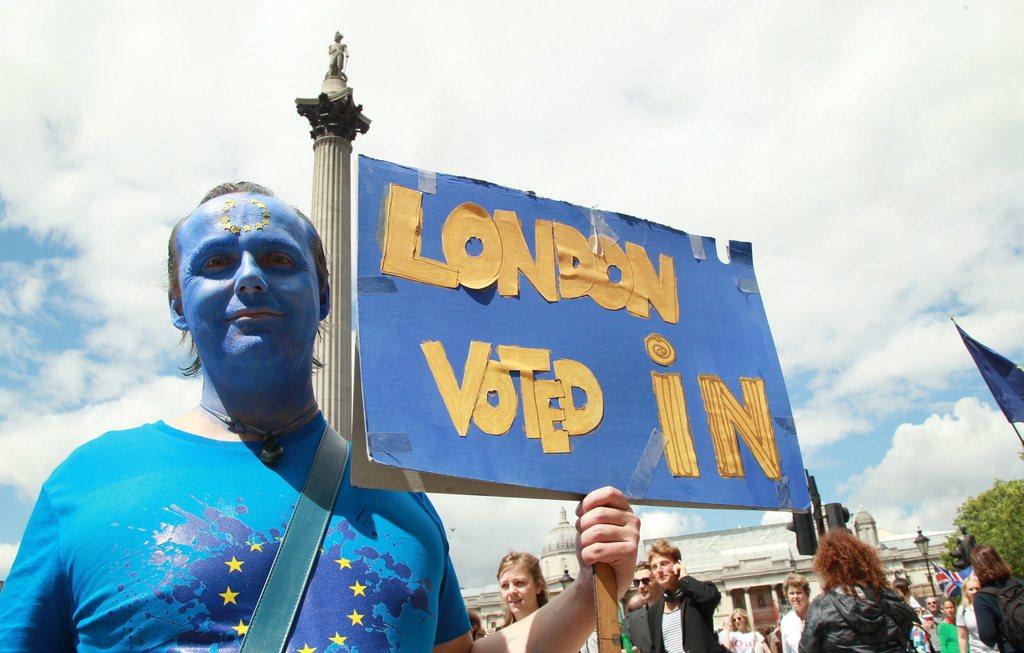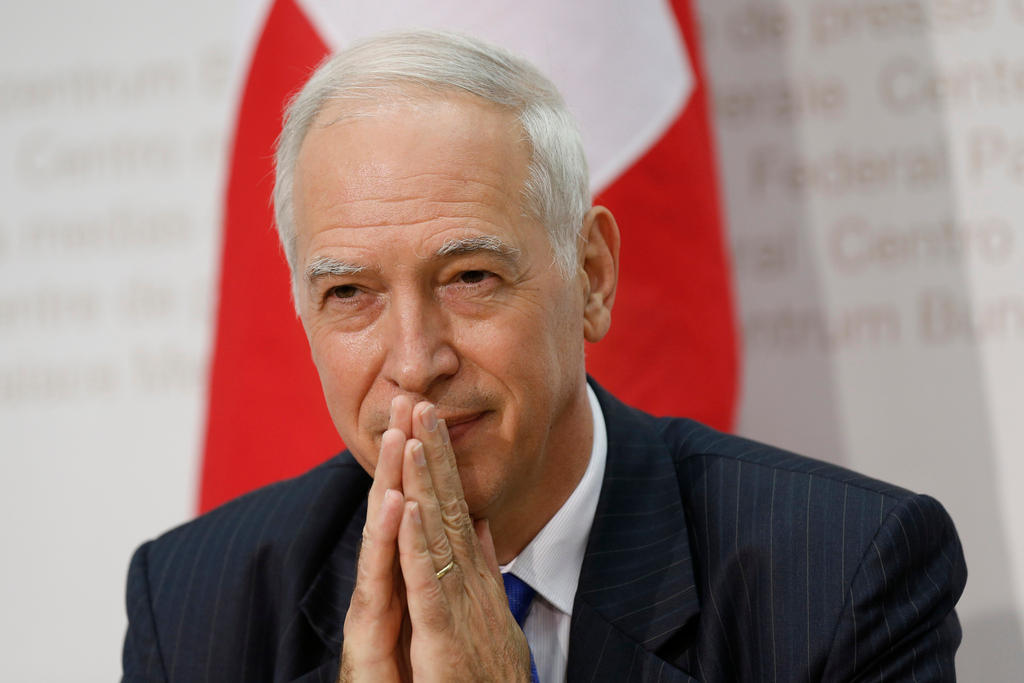British interested in Swiss model to save Europe ties

Post-Brexit Britain is likely to opt for a Swiss-style solution – rather than a Norwegian model – to oversee relations with the European Union. The Swiss path should offer greater flexibility but is strewn with obstacles, warns an EU expert.
As Britain and the rest of the world grapple with the uncertainties after the historic referendum last Friday, all eyes are on what happens next. How will Britain manage the political and economic chaos unleashed by its vote to exit the EU? How can it negotiate its divorce from the EU and what long-term ties does it want to maintain with the bloc?
On Tuesday, outgoing British Prime Minister David Cameron told reporters in Brussels that Britain should seek “the closest possible relationship” with its former EU partners.
Cenni Najy, a researcher from the Swiss Forum on Foreign Policy think tank (Foraus), believes a model similar to Switzerland – which is not an EU member but has close ties – is the most likely way forward.
“Some British officials have shown an interest in the bilateral path, as they believe it’s more flexible. It defends their interests,” he told swissinfo.ch. “Their solution would look a lot like the Swiss model but with a few differences. There wouldn’t be Schengen, for example, which Switzerland is part of.” [Agreement for borderless zone covering 22 EU members and four non-EU: Iceland, Norway, Switzerland and Liechtenstein].
‘Plan B after Brexit’
Najy, nonetheless, warns that the British face a colossal uphill task if they want to pursue the Swiss model. A recent Foraus study, “Plan B after Brexit”External link, concluded that contrary to popular belief, negotiating the bilateral agreements between Switzerland and the EU was a “long and at times cumbersome process” taking over ten years from the start of negotiations to ratification.
Foreign affairs commission
Despite Brexit, Switzerland should continue to try to find an amicable resolution with Brussels to the implementation of the mass immigration initiative, the House of Representatives’ foreign affairs commission said on Tuesday.
Commission president Roland Büchel didn’t think Brexit had made the situation much worse for Switzerland, pointing out that Britain would not leave the EU immediately. The negotiation window therefore remained open for Switzerland, he said.
The commission criticised the cabinet’s reaction to the British referendum on June 23, with several members saying they had wanted to see the cabinet presenting a united front.
And several points on the negotiation agenda – including the free movement of people – were included against the will of the Swiss.
Leave campaigners in Britain, like former London Mayor Boris Johnson, a possible successor to Prime Minister David Cameron, have suggested Britain can retain access to the European single market and curb immigration. But German Chancellor Angela Merkel says Britain will not be able to “cherry-pick” the parts of the EU it wants.
“The British will say they don’t want free movement of people but they will have to backtrack on that and it’ll be all about horse trading. That’s what happened with Switzerland in the 1990s. We started negotiating on 18 different issues. The European Commission withheld six and added the free movement of people,” said Najy.
Norwegian-style
Several Brexit supporters, such as British Health Secretary Jeremy Hunt, seem keener on the Norwegian-style model for ties with the EU, which they believe would include full access to the single market with a “sensible compromise on free movement rules”.
As part of the European Economic Area (EEA), Norway is a member of the European Free Trade Area (EFTA) and has a trade deal that gives it access to the single market. But Norway accepts free movement of EU nationals and pays a contribution to the EU budget as large as Britain’s, when measured per person. Norway also has to accept the EU’s single market rules and regulations without a having a say in making them.
“There is a problem as the EEA works very well for the EU, and for the Norwegians too. At the EFTA meeting yesterday in Bern they told me that they don’t want the UK in the EEA, as it’ll be the elephant in the room,” said Najy.
Meanwhile, over the past two decades Switzerland has drawn up over 100 bilateral deals with the EU ranging from trade to science, but stops short of financial services. Bilateral accords are cheaper than EU membership but Switzerland still has to pay for its participation in EU programmes. According to the Foraus study, Switzerland pays over CHF500 million (€460 million) a year for programmes including Schengen and Horizon 2020 research.
The small alpine nation in the centre of Europe adopts EU rules in the areas in which it has single market access. It does not have full access, and has no say in making the regulations. It also accepts the free movement of EU citizens, although a 2014 referendum vote in favour of restrictions has jeopardised Swiss-EU economic ties.
“There was a gradual opening [to free movement] and for ten years the possibility of limits, either quotas or safeguard clauses. Switzerland can no longer do that but it was quite an interesting system. Could the EU accept a similar progressive mechanism for the UK? Perhaps,” said Najy.
However, if the British pursue a Swiss-style model, the negotiating climate will be much tougher. Britain is seeking a divorce, while there were hopes at the time that Switzerland might one day join the EU, said the researcher.
“It will be complicated but not impossible. The negotiations will be long and tough. Now you have 27 member states who have their say. For Switzerland there were only 12,” he added.
What do you think? Is it easier to negotiate with the EU as a non-member, like Switzerland, or as a former member?

In compliance with the JTI standards
More: SWI swissinfo.ch certified by the Journalism Trust Initiative














You can find an overview of ongoing debates with our journalists here . Please join us!
If you want to start a conversation about a topic raised in this article or want to report factual errors, email us at english@swissinfo.ch.